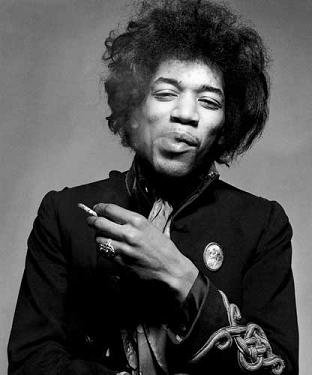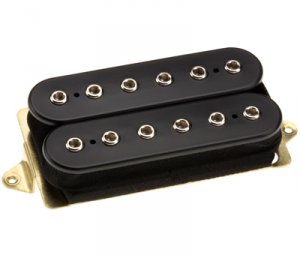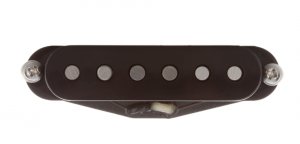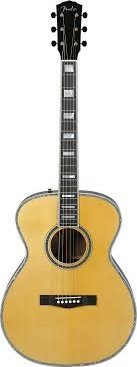Jimi and Jimmy
Many have debated who the best guitar player in history is. The debates about his topic are usually all just opinion due to the fact that every guitar player has a different way of playing, even though two guitarists may play the same genre of music. Every guitarist has their own voice in guitar, just like singers all have a different voice. It can be debated who has the better voice, but it would all just be opinion. Some guitarists obviously have more skill than others, but when comparing two masters of guitar, it would mostly just be opinion.
Jimmy Page and Jimi Hendrix were two guitar players from the same era and that played with a similar style. Jimi Hendrix is the better known of the two, while Jimmy Page is less known. Some do not even know who Jimmy Page is.
Jimmy Page
James Patrick Page, known as Jimmy Page, was born January 9, 1944, in Heston, England. He took up the guitar at the age of 13 after being inspired by the famous musician Elvis Presley. In 1965 he was asked to join the band The Yardbirds. He turned down the offer, recommending the guitarist Jeff Beck. The next year The Yardbirds sought him out again, and he finally agreed to join. For a while the band had two lead guitarists. Beck left in 1966 due to poor health and a possible nervous breakdown.
The band fizzled out in 1968, and Page formed a new band to play some remaining Yardbirds concert dates. They originally called themselves The New Yardbirds. The band consisted of John Paul Jones on bass and keyboards, John Bonham on drums, Jimmy Page on guitar, and Robert Plant on lead vocals (“James Patrick Page”).
In 2003, Rolling Stones magazine rated Jimmy Page as the ninth best guitarist in all of history. They stated that Jimmy Page was best known as the “Fire-slinging riffmaster that helped Led Zepplin to hard-rock dominance in the 1970s.”
Led Zepplin toured the U. S. in early 1969, opening for the band Vanilla Fudge. They released their first album in February; within months it had reached Billboard’s Top 10. Led Zeppelin II, their second album, reached Number One , only two months after its release, and since then every album of new material has gone platinum; five of the group's albums have reached Number One (Serpick).
In September 1980, John Bonham died at Jimmy Page’s house after heavily drinking and chocking on his own vomit. After the event Page could not bring himself to pick up the guitar again for months. The band decided that they could not continue without Bonham. Led Zepplin broke up that year.
In 1982, Page returned as a music composer and penned the score to the Charles Bronson film Deathwish II. Page reunited with John Paul Jones and Robert Plant in 1985, to play the international benefit concert Live Aid. They were joined on stage by drummers Tony Thompson and Phil Collins. They played together again in 1988, for the special concert held in honor of Atlantic Records 25th anniversary. This time, however, Jason Bonham, son of the late John Bonham, filled in on drums. Page helped revive Led Zeppelin in 2007, for a special benefit show for the Ahmet Ertegun Education Fund. Led Zepplin had been dead for 19 years which resulted in the show very quickly selling out. Everyone was shocked by how Jimmy Page, at the age of 63, had not diminished in skill with the pass of time.

Jimi Hendrix
Johnny Allen Hendrix (later changed to James Marshall), known as Jimi Hendrix, was born on November 27, 1942, in Seattle, Washington. He was first inspired by Elvis Presley when he was 14 years old and took up the guitar at the age of 15. Jimi Hendrix dropped out of high school in 1959. He worked odd jobs while pursuing his musical aspirations. Hendrix enlisted in the United States Army in 1961 and trained to become a paratrooper at Fort Ord in California. He found time for music even as a soldier, creating a band named The King Casuals. Hendrix served in the army until 1962 when he was discharged due to an injury.
After being discharged, Jimi chased his musical dreams whole heartedly, becoming a session musician. He played backup for performers such as Little Richard, Sam Cooke, and the Isley Brothers. He also formed a band of his own called Jimmy James and the Blue Flames, which played shows around the New York City area.
In 1966 Hendrix met Chas Chandler who became his manager. Chandler convinced Hendrix to go to London where he joined forces with musicians Noel Redding and Mitch Mitchell to create The Jimi Hendrix Experience. There he built up a great following among England’s rock royalty; members of the Beatles, the Rolling Stones, the Who and Eric Clapton were all great admirers of Hendrix's work.
All three of the albums released by The Jimi Hendrix Experience were instant hits. Their final album, “Electric Ladyland,” was released in 1968 and featured the hit "All Along the Watchtower," which was written by Bob Dylan. The band then broke up in 1969 (“James Marshall Hendrix”).
Rolling Stones Magazine hailed Jimi Hendrix as the best guitar player of all time. They described him as, “One of the biggest cultural figures of the Sixties, a psychedelic voodoo child who spewed clouds of distortion and pot smoke.” He pioneered the use of the instrument as an electronic sound source. Players before Hendrix had experimented with feedback and distortion, but he turned those effects and others into a controlled, fluid vocabulary (Kemp).
Hendrix died on September 18, 1970, due to drug-related complications. Even though he was only 27 when he died, Jimi Hendrix had a huge impact on the world of rock, and on the whole realm of guitar. One journalist wrote, "Jimi Hendrix could get more out of an electric guitar than anyone else. He was the ultimate guitar player." ("James Marshall Hendrix").
Determining who the better guitar player was would be hard to say due to the fact that Jimmy Page is still alive and playing guitar to this day, and that Jimi Hendrix is long since passed away. We can look at their lives and see that in the short 27 years he lived, Jimi Hendrix had a huge impact; whereas Jimmy Page did not have such a great impact. Jimi Hendrix was more influential in the area of guitar, but, on the contrast Led Zepplin had more hits and lasted longer than The Jimi Hendrix Experience. Jimi Hendrix wins when looking at the more influential guitar player and guitar icon.
As stated in the beginning of this article, comparing two masters of guitar all comes down to, for the most part, one’s opinion. Both Page and Hendrix brought something to the table, Hendrix just brought a little more for the little time he was alive. That is not to say Jimmy Page did not have a large impact on the music realm; they both were masters of guitar and they both had a huge impact on music, and they both helped form it into what it is today. We will always have both of them to thank for helping mold guitar, and music in general, into what it is today.

The Reality of Living on the Road
Everyone believes that living your life on the road and playing music for a living is all great and perfect. Well, it is not. In fact, it is a very harsh, tough life; you spend hours driving, barely being able to pay for food, sometimes not even eating because you lack money, most of the time forced to have a job back home just to pay bills. When you are not living in a van then you’re living in a tiny, old apartment; or in some guy’s basement; or, if you are lucky, in your parent’s home.
Don’t get me wrong, it is a very enjoyable life experience and a great way to live. You feel so alive, play shows for excited crowds, and get to meet some really fascinating people. It’s just that you miss out on so many things the average person takes for granted, like living in one place, having a nice house, being able to shower every day, eating homemade food; the list goes on and on.
I can remember sitting in the back of a van after playing a show in a tiny Minnesotan town that was less than five miles south of the Canadian border. We had played a great show the night before, and played with some really cool bands. Nothing broke during the show, which was a surprise to all of us, usually we at least broke a string, or a chord, or our drummer would crack one of his symbols. After sweating through the show in a small, church that lacked even the slightest air conditioning, we went to the town’s little grocery store and bought some chicken which we devoured while sitting on a sidewalk under the faint light of a dim street lamp. We slept on the floor of a church that night, woke up in the morning, used the bathroom sink and a few paper towels for a shower, then packed up the van and drove to the next show. This time going to a festival with lots of other bands. They had been planning on having three stages that day, two of which were outside, but then it rained all day so we had to fit all the bands inside and play on one stage, every band quickly tearing down and helping the next set up. It was a huge delay in the festival and made it a much later night than anyone had planned on.
You see, bands and shows may seem like they always go as planned to the audience, but in reality they have many things that go wrong. Ask anyone that’s been in a band or is in a band, and they will tell you of all their shows that went wrong; all the crazy places they had to sleep in, or all the nights they have gone sleepless; and all the ridiculous things they have had to do simply to bring music to the public’s ears. By no means is being a traveling musician an easy life, but for most of us it is a life we enjoy and a life worth living.
I remember most of the crazy things my band and I did. One time we even had one of our ninety pound bass amps fall on our bassist, but he picked up the amp and kept playing the show with the sound guy desperately trying to stop his leg from bleeding. Our bassist went to the emergency room shortly after we finished the show and got multiple stitches, we took the saying “the show must go on” very seriously. It did not matter how little we had slept the night before, or how little we had eaten that day, or if we were hurt; the show had to go on. We were known for our fun and energetic shows, and even though most of us were legally adults we were looked at as the crazy kids who were doing it for the joy of it and to spread a positive message about our Christian beliefs.
I do realize that not all musicians have to go through this much work and struggle with so much, actually most big bands have it pretty easy, they get to sleep on a tour bus, have people that help them carry all their gear to shows, and for the most part live a fairly easy life. However, they do also lack most of the stuff that most common folks have, it is not an easy life for them or their families either. The ones I am talking about when I say they have it really tough are the ones that are not a large name in the music world, the ones who are there to play music but for some reason or another they never “make it” in the world of music, which are not very accurate words: I have seen bands that are thought of as nothing great, but yet they have such great music and such inspiring potential. What it all boils down to in this world is not if the music is well written or not, it is simply whether the public likes the music the band writes.
Is this right or is it wrong? I think it is neither because in reality, the public are the ones keeping bands on the road and playing music. We the people are the ones that make dreams come true. We have the power whether to say a band succeeds or fails simply by whether we choose to support them or not. Sure, it is a little harsh that non-musicians choose how successful a musician will be in life, but that’s just how it is.
The fact that non-musicians are the ones that choose the genres of music that thrive and the ones that die out is not unfair by any means. The whole point of musicians going on the road is to bring music to the public, we cannot choose which bands and genres they will like and which ones the will not. That is for them to decide because they are the ones we are bring the music to; they are the judges of our music. In essence, to be successful in the world of music is sadly not usually based on the quality of the music, but rather simply on whether or not the public will like it.
As you can see, being on the road is much harder than most think, and not only do you have hard living conditions and you have to write music that will interest the public, you also have to give people an example to look up to. I realize that a lot of people do not think that is a big part of it, even some musicians in bands do not realize how much of an impact they have on other peoples’ lives simply because they stand on a stage and play music. The words they say on stage and off stage some people will follow blindly simply because they think the musician is perfect. A lot of people don’t realize that people in bands are just people with nothing special about them other than that the public liked their band and made them famous.
I believe you now see why I say being in a band and bringing music to the public is not as most see it and it does not have all the glory most think it does. Not only do you have to deal with injury, lack of sleep, not having a place to call home, never having homemade food, and constantly traveling; but also you have to write and play music that the public wants to hear and you have to be able to take the stress of having people constantly looking up to you as if you are perfect. You see, life as a traveling musician is not a smooth and easy path; but it is not by any means a pointless, hopeless endeavor for one passionate about music.
The Many Styles of Guitar
Types of electric guitars
As we stated previously, there are many types of electric guitars. First off, there is the famous guitar that almost everyone can picture in their mind; a classic rock guitar. When most think of a classic rock guitar they think of Jimmy Hendricks standing on stage shredding on an upside down Gibson Les Paul. Even though the Les Paul is one of the more famous rock guitars, it is not the only kind of rock guitar. The main factor that separates a classic rock guitar from all others is not actually the look, it is the pickups on the guitar. These kinds of guitars have a pickup called a dual-coil or humbucker. The humbucker is a certain kind of pickup that has two coils, one with a south magnetic force and one with a north magnetic force. The fact that they have two coils make them cancel out a lot of the feedback, or hum; they buck the hum, hence the name humbucker.
The reason that most rock guitars have humbuckers is because that way a heavy distortion pedal can be used and have it will still sound like a guitar. Even though there are certain styles of guitars that are titled “rock guitars” and others titled “metal guitars” the truth of the matter is that they can, for the most part, be intermixed. They both are equipped with humbuckers, the only real difference is that metal guitars can actually be longer in scale so they can be drop tuned.
Drop tuning is another whole element of guitar; it is where one or all the strings are tuned down to give it a lower sound. This is a technique used usually in heavier styles of music, such as metal, heavy metal, hardcore, metalcore, thrash metal, death metal, and other such styles of music.
Another style of guitar is a jazz guitar. There is not just one style of jazz guitar; some jazz musicians would play on an acoustic, or on various styles of electric guitars. The main style used would be a kind of guitar called a hollow body guitar; this guitar will either have humbuckers, or single coil pickups. Usually they have single coils, which is a pickup that contains a single, magnetic coil that picks up the vibrations of the strings. The reason these guitars have single coil pickups is due to the fact that in this style of music they rarely, if ever, use any form of distortion.
Another form of electric guitar is the light rock guitar. This guitar usually has a solid body and single coil pickups. This kind of guitar works also for more of a country style sound. It sounds great with lighter distortion and is very rarely used with heavy distortion. It usually has a very clean and clear tone. There are many forms of electric guitars, but generally they all fall under one of these four main categories: rock, metal, jazz, and light rock or country.
There are three main categories of acoustic guitars: normal acoustics, twelve strings, and classical acoustics. Acoustics are characterized by a hollow body and generally have a circler hole in the center of them. They are much wider than electrics due to the fact that they rely on the shape of the body and the hollowness of the body to produce their sound.
A twelve string acoustic guitar is just like a normal acoustic except for the fact that it has twelve strings instead of six. The way to play these guitars is actually just like a six string guitar would be played. Because the strings on a twelve string guitar consist of the same notes as a six string, it is just that the top three strings have a string right below them that is an octave higher and the bottom three have a second string with the same note under them. The only difference is that if one note was played on a six string, the same note would be played twice on a twelve string.
The third form of an acoustic guitar is the classical guitar. This guitar is very different than all other guitars. It does have the same body as a normal acoustic guitar, but the big difference is that its strings are made of nylon. The bottom three are made solely of nylon and the top three are made of nylon wrapped in either silver plated wire or copper wire. These strings give it a very soft and gently sound.
There are not just two kinds of guitars; there are many. Every guitar can be used to play any style of music, but each guitar has a different sound and has a certain genre of music it works best with. Despite what many think, there is a big difference in guitars even though they are all the same instrument.

Most may not realize it, but there are many different kinds of guitars for many different styles of music. There are certain guitars for everything from jazz to metal to classical music. You could, for the most part, play any style of music on any kind of guitar. You could use a metal style guitar to play a jazz song, but it is not going to sound like it is supposed to. Many just place guitars in three different categories: electric guitars, acoustic guitars, and bass guitars. These categories are true to a point, acoustic and electric are the two main divisions in guitar. Bass guitars are not technically even guitars any more than a mandolin is a banjo. Must musicians would say, “Wait a minute, bass guitars and normal guitars have the same set up, the bass simply only has four strings versus six strings. So they are the same, the bass just has less strings.” This is a fair enough assessment, but the truth of the matter is that all instruments have the same notes, they are all just played differently. That is what separates a guitar and a bass; they are played differently.
One may say, “Well, if a bass and a guitar aren’t the same, then is an acoustic and an electric guitar different?” Yes, they are different, but they are still the same instrument. Usually they are played differently, but a talented guitar player can play a lead guitar solo (which is usually an electric guitar characteristic) on an acoustic guitar even though an acoustic is technically a rhythm instrument. They are both guitars and can both be played the same way, hence they are the same instrument.
Now there are many differences that separate an acoustic and an electric guitar. First off, the acoustic relies on the wood and the body shape and its size for its tone and sound, whereas an electric guitar relies on the pickups and its tone can be adjusted easily by the turn of a knob. Of course, there is such a thing as an acoustic electric guitar. That kind of guitar can be either played as an acoustic guitar and then works the same as an acoustic guitar, or it can be plugged into an amp. Most acoustic electrics have tone and volumes controls on them, but not all do. How do you adjust the tone and volume if the guitar lacks these controls? Well, the answer to that is actually rather simple: you either adjust it on the amp or you use a pedal.
Humbuckers are usually used in heavy styles of music.

Single Coils are usually used in light styles of guitar.

Acoustic guitars rely on their hollow body and body shape to make their sound.
the life of a Street Musician
Some call them homeless, others call them buskers, and some call them street musicians. Whatever name they may be called by, they sit on the street corner and play an instrument for money. Most have seen one of these people before, but have we ever stopped to talk to them or care to ask them if we can get anything for them? Most of us just walk by quietly; others judge them; some will even aggressively attack them with their words, or actions. We see them as filthy, dirty people that need to get a real job and quit begging us for food and our hard-earned money.
What if we have too many preconceived notions? We tend to judge them before we actually know why they are playing music on the streets. They are not all there simply to gain spending money for drugs and alcohol. Some are there because they love music and failed in all other areas of life and now are doing all they can to make a living. Some were abandoned as children or teenagers and had no other option than to drop out of school and doing something to support their siblings.
I can remember the one day I met a small, skinny boy of the age of sixteen who had lived his life as a street music, here is his story:
Jake lifted his eyes up in to the pouring rain, today he had to sit under the eve of a building in the downtown of New York. The city could look so dark and scary on days like this. Well, to Jake every day in this city was dark and scary. Like the walk home late at night always scared him, there were always at least five shady looking people that followed him with their eyes every night, sometimes more. Every day was a day he was scared he was not going to make it home. He knew he was lucky to even have a place to call home.
Both he and his little sister had been abandoned by their parents two years ago, they had been fortunate enough to find a man that rented a tiny, dark, and filthy room in his basement to them. Every night they could hear rats scurrying around on the floor. At first they had been terrified by the sounds of their claws clicking on the hard cement floor, but after a time they became accustomed to it. Jake tried to think of them like he thought of himself; just a poor animal that had been abandoned and that no one loved and cared for. It was very humbling for him to compare himself to a rat, but at the same time he knew everyone else saw the resemblance.
He was seen as filth by most, every now and then when he was playing his guitar on the streets he would gain a smile or a pat on the back, and if he was lucky some change, sometimes he even made a few dollars. It did not matter to him whether he got a penny or a dollar; everything helped. A handful of change could buy some day old bread which he and his sister would eat as their one meal for the day.
They had learned not to be greedy and to be grateful for what they had, but it was hard seeing people wearing nice, clean clothes; people that obviously had a few dollars to spare but simply turned up their noses and walked away. They would not give to someone who could go earn money elsewhere, but had they never thought that this was his only form of making money? They did not understand what had happened to him and that this was indeed his only form of making money for him. Of course, Jake and his sister could go to the courthouse and tell how they had been abandoned by their parents and then possibly get adopted, but they did not want new parents, they did not want anyone else to abandon them. The only ones they could trust were each other. They thought they could trust their parents, but they were proven wrong.
Jake did not understand how or why they had abandoned them. Maybe they had not, maybe for some reason their parents had to disappear. Perhaps they would come back for them, but that was only wishful thinking. Jake knew they had abandoned and they were on their own now. No one was going to help them. That also scared Jake, the world he had known and had trusted was, all of a sudden, turned upside down. Now he knew not who to trust and who would keep their word.
This had been a world that once showed promise of giving him a good life, but that promise was empty. There would be no glory in this life for him. He would always have to live on the streets, barely being able to make money, being judged for not having what most would consider a “real” job. It was a real job though, but no one would ever see it that way.
It was very easy for him to feel depressed, especially on days like this. The cold and the rain soaked through his old, torn clothes and left him feeling totally abandoned and miserable. No one would ever understand him or what he was going through; no one would ever show him compassion. He looked down at his guitar, for some reason it reminded him of himself: worn, battered, and just tired of being used. He was tired of being looked at as a wild animal and a beggar. He wanted more out of his life than this, he wanted to be more than what people thought of him as. He wanted to be a respectable, and pleasant boy. Never would he get that chance, unfortunately; he would always be a looked at as quite the opposite.
Jake looked up to a man that was giving him a dirty look. “Yes? Can I help you?” Jake asked. The man looked down at him, the dirty look getting more intense by the second. “Yeah, get off the street and quit begging,” said the man. “Never once did I ask you for anything, and you have much; but I have little, and you ask me to give up my only form of making money,” said Jake, he stood up, picked up his guitar and stormed off into the rain. “Have a blessed day, sir. I hope all your dreams come true, and I actually mean that. Mine never have, but I hope yours do.” Jake called over his shoulder.
That day was the day I met Jake in the rain on a stormy day in New York. I was the man that had given him the dirty look. Later that day I found him, he shared his story with me and opened my eyes to see that they are not all bad people; they are not all filthy people; they are not all drug addicts and alcoholics. We all have too many preconceived notions and are too quick to judge. Next time you see one of these people, do not just walk by or give them dirty looks. Hand them a dollar, or simply just give them someone to talk to. Next time you see one ask why they are out on the streets playing music, do not just judge them. Who knows? Maybe they have a sad life story and just need someone to show them kindness.


A Note from the Author
Greetings, friend, I want to thank you personally for picking up this addition of “Harmonic.” Our goal is to tell interesting stories and give exciting insights about the world of music and guitar. I hope they inspire you to either pick up that old guitar in the corner, blow off the dust and start playing again; or they help you on your journey through the world of guitar.
Whether you’ve been playing guitar for years or haven’t played a guitar in years, this magazine is designed for you personally. Go ahead, enjoy every moment of it! I know I certainly have enjoyed writing it for you and am excited to write more for you in the future.
I began my own walk in the world of guitar as a young lad and have been in various bands of many different styles over the past years. Each band is a new and different experience and I have learned much through my years of playing guitar.
Five years ago as I was sitting around the table trading stories with musician buddies from the past, one looked at me and said, “Hey, you have some knowledge on guitar and love to share with others. Why not start a magazine or something?” Well, I could find no reason not to write one. After a few weeks of thinking about it, I finally decided to give it a try.
We printed our first issue only months after the night the idea was brought up. Now look at us, years down the road and still printing. I want to thank you for making this all possible and I hope you enjoy this addition, without you this dream would have never come to life. Thank you for reading and making “Harmonic” possible.
-Carson Lahr
Harmonic
The life of a Homeless Musician
The Many Styles of Guitar
Reality of Being on the Road
Jimmy and Jimi
Back Next
 Magazine Posts
Magazine Posts Table of Contents
Table of Contents